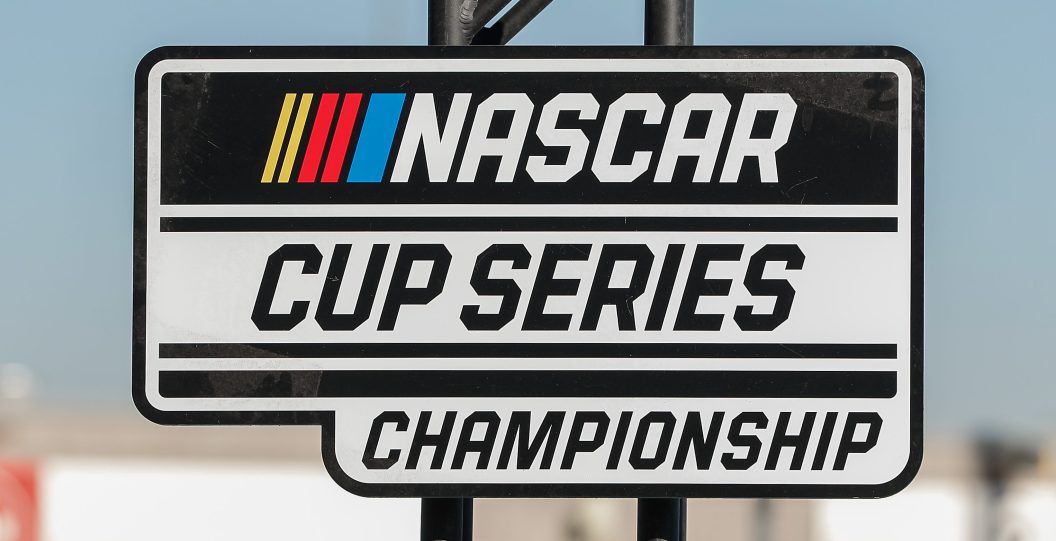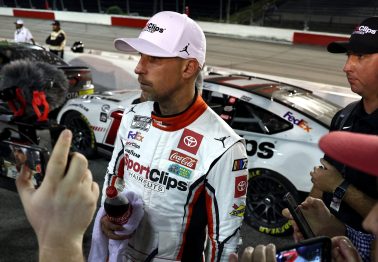Charter negotiations between NASCAR and its teams have been going on for over a year, but after extending those negotiations through January, the two sides seem to be farther apart than they have ever been before. It looks like the charter agreement, which expires in 2024, will not be renewed.
The biggest cause of the divide is that NASCAR and the teams don't see eye-to-eye on the revenue-sharing agreement.
NASCAR just signed a TV deal worth $7.7 billion over the next seven years, and the teams would like a larger share that money than they have received previously.
It isn't a an unrealistic by the teams, as they have mostly operated off of sponsorship money, with the current revenue agreement adding funding for the 36 chartered cars. Those 36 cars are guaranteed starting spots at each race.
While the teams want more of the revenue, NASCAR would much rather implement a spending cap, similar to a salary cap in the NBA or NFL.
Adam Stern of Sports Business Journal broke the news that the teams refused to extend the negotiation period any longer. He was also the writer who proposed that the Cup teams might try to pull a protest at a race or something of that nature.
According to Stern, the stalemate has reached a point where Cup teams could now technically shop their rights to other racing series.
The charter system has worked for the last several years, and NASCAR is willing to continue the system in 2025.
However, with the teams not wanting to agree, NASCAR has made it clear that if no new governing agreement is reached, it will be able to seize teams' charters.
At a time when those charters are costing between $30 million and $40 million, the fact that NASCAR could threaten to take them away just doesn't seem like a healthy path for the sport.
Brad Keselowski and Denny Hamlin are both racers in the Cup Series, but they are also team owners. Hamlin co-owns 23XI Racing, which has Bubba Wallace and Tyler Reddick as drivers; and Keselowski, is a co-owner of RFK Racing. RFK fields his No.6 car and the No. 17 car for Chris Buescher.
Both owner-drivers have shared their thoughts on the charter agreement issues.
Keselowski told Fox Sports' Bob Pockrass in January that it is a very frustrating time in the sport.
NASCAR and the teams have yet to extend the charter agreement for 2025 and beyond. Speaking a couple weeks ago, RFK Racing co-owner Brad Keselowski says it would be foolish not to be somewhat concerned and that negotiations are tough but will get done. pic.twitter.com/Cxh5MxiLsf
— Bob Pockrass (@bobpockrass) February 1, 2024
"You need to be a fool to not be somewhat concerned. But the reality is we're in January of 2024 and it still doesn't need to get done till February of 2025. Everybody would like for it to be done but it really doesn't need to be done earlier than that," Keselowski said.
Despite the challenges of the negotiations, Keselowski is optimistic. "The negotiations are tough... But at the end of the day, I'm confident we're going to show up to the Daytona 500 and race. I know I'll be there. We might be racing wheelbarrows, but we'll be racing, and it's going to be a great race."
He also had a message for the fans, that they don't need to fret.
" I tell all the fans that might be listening or watching like, don't worry about this. We're going to figure it out," Keselowski said.
Hamlin echoed Keselowski's sentiments on the situation and believes it would be a whole lot smoother if they could get it done sooner, but knows it is a process.
"The whole process is slow, and I think I'd certainly rather had this done months and months ago. But it's been a slow process to try to get any answers and transparency that we needed. So, it's going to be tough to meet deadlines, that's for sure," Hamlin said. "I think it's going to take some time, and it's just a matter of how long NASCAR wants to drag it out really."
Whatever the answer is, hopefully, it doesn't result in NASCAR's threat. IndyCar had a power struggle between Indianapolis Motor Speedway and CART at the height of the sport's popularity in the mid-1990s. The result was a split between IMS' Indy Racing League and CART — a civil war that didn't end until 2008 and from which IndyCar is still recovering.
NASCAR has reached a major popularity point with its new Netflix Series "NASCAR: Full Speed" trending worldwide and high on the Top 10 list in the United States and several other countries. NASCAR certainly would be able to operate if it were to have some kind of split, but it likely wouldn't thrive as it is doing now.
Here's to hoping that these are empty threats and that cooler heads prevail for the sake of fans, the teams, drivers and the sport.

